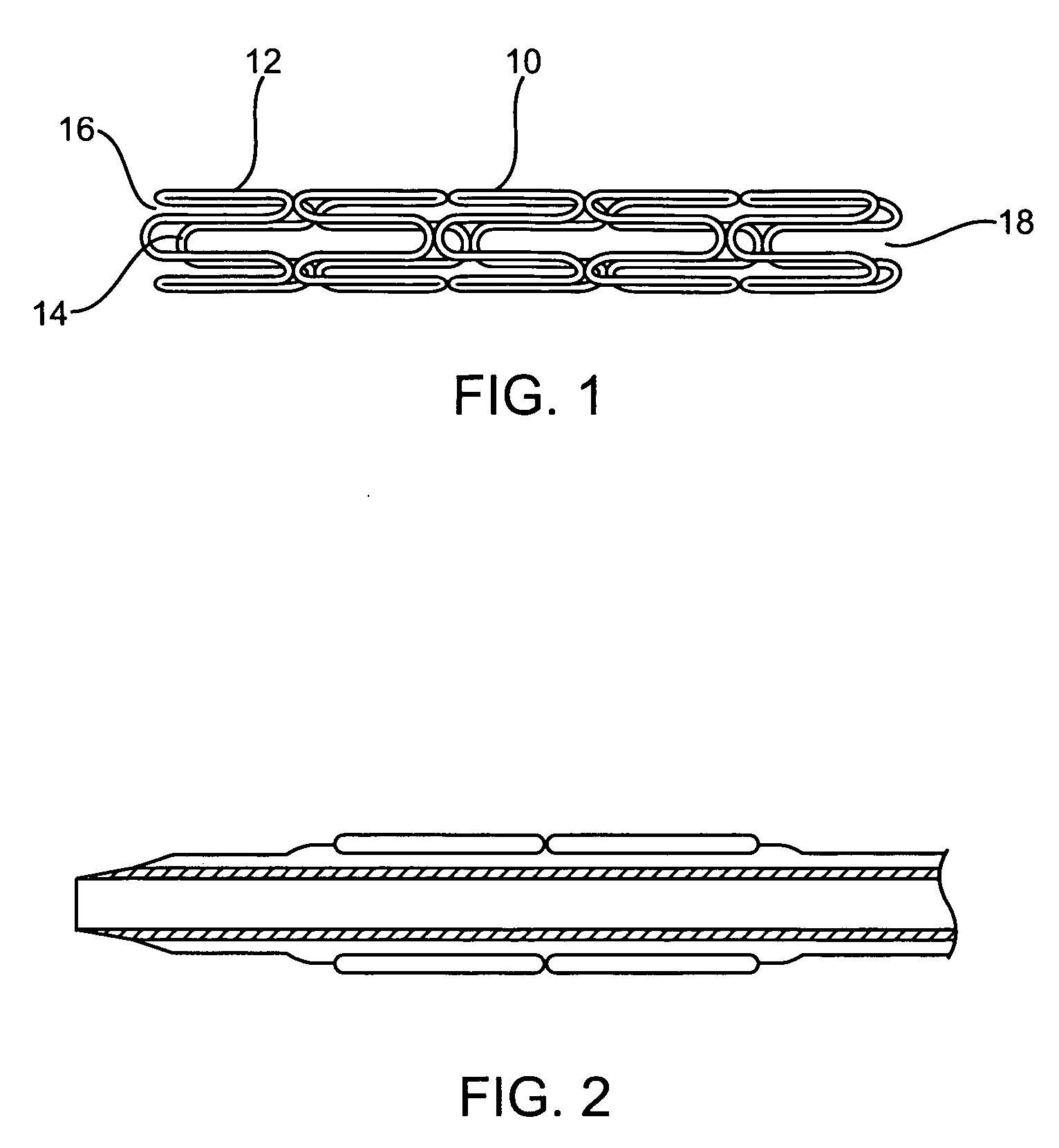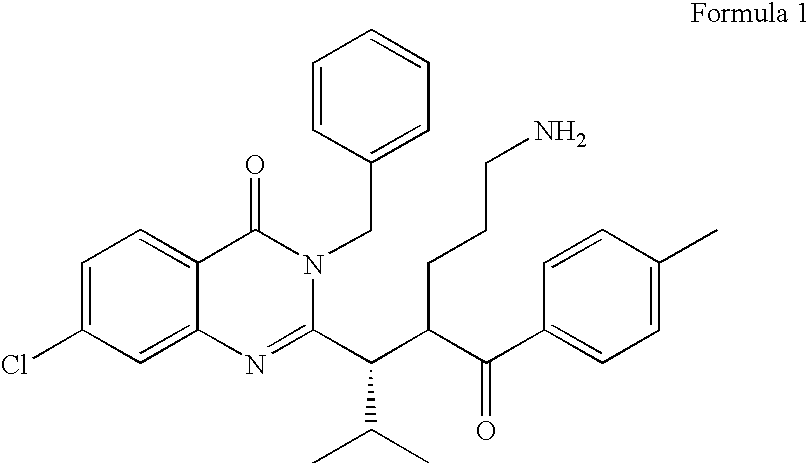Medical devices to treat or inhibit restenosis
a technology of medical devices and restenosis, applied in the field of medical devices, can solve the problems of the exact cellular functions that must be inhibited, and the duration of inhibition needed
- Summary
- Abstract
- Description
- Claims
- Application Information
AI Technical Summary
Benefits of technology
Problems solved by technology
Method used
Image
Examples
example 1
Metal Stent Cleaning Procedure
[0062] Medtronic Vascular, Inc. Driver® cobalt alloy coronary stents were placed in a glass beaker and covered with reagent grade or better hexane. The beaker containing the hexane-immersed stents was then placed into an ultrasonic water bath and treated for 15 minutes at a frequency of between approximately 25 to 50 KHz. Next the stents were removed from the hexane and the hexane was discarded. The stents were then immersed in reagent grade or better 2-propanol and vessel containing the stents and the 2-propanol was treated in an ultrasonic water bath as before. Following cleaning the stents with organic solvents, they were thoroughly washed with distilled water and thereafter immersed in 1.0 N sodium hydroxide solution and treated at in an ultrasonic water bath as before. Finally, the stents were removed from the sodium hydroxide, thoroughly rinsed in distilled water and then dried in a vacuum oven overnight at 400C.
[0063] After cooling the dried st...
example 2
Coating a Clean, Dried Stent Using a Drug / Polymer System
[0064] In the following Example chloroform or tetrahydrofuran is chosen as the solvent of choice. Both the polymer and CK-0238273 are freely soluble in these solvents. Persons having ordinary skill in the art of polymer chemistry can easily pair the appropriate solvent system to the polymer-drug combination and achieve optimum results with no more than routine experimentation.
[0065] 250 mg of CK-0238273 is carefully weighed and added to a small neck glass bottle containing 2.8 ml of chloroform or tetrahydrofuran and thoroughly mixed until a clear solution is achieved.
[0066] Next 250 mg of polycaprolactone (PCL) is added to the CK-0238273 solution and mixed until the PCL dissolved forming a drug / polymer solution.
[0067] The cleaned, dried stents are coated using either spraying techniques or dipped into the drug / polymer solution. The stents are coated as necessary to achieve a final coating (drug plus polymer) weight of betwe...
example 3
Coating a Clean, Dried Stent Using a Sandwich-Type Coating
[0069] A cleaned, dry stent is first coated with polyvinyl pyrrolidone (PVP) or another suitable polymer followed by a coating of CK-0238273. Finally, a second coating of PVP is provided to seal the stent thus creating a PVP-CK-0238273-PVP sandwich coated stent.
The Sandwich Coating Procedure:
[0070] 100 mg of PVP is added to a 50 ml Erlenmeyer flask containing 12.5 ml of chloroform or tetrahydrofuran. The flask was carefully mixed until all of the PVP is dissolved. In a separate clean, dry Erlenmeyer flask 250 mg of CK-0238273 is added to 11 ml of the same solvent and mixed until dissolved.
[0071] A clean, dried stent is then sprayed with PVP until a smooth confluent polymer layer was achieved. The stent was then dried in a vacuum oven at 50° C. for 30 minutes.
[0072] Next, successive layers of CK-0238273 are applied to the polymer-coated stent. The stent is allowed to dry between each of the successive CK-0238273 coats. A...
PUM
| Property | Measurement | Unit |
|---|---|---|
| total thickness | aaaaa | aaaaa |
| total thickness | aaaaa | aaaaa |
| total thickness | aaaaa | aaaaa |
Abstract
Description
Claims
Application Information
 Login to View More
Login to View More - R&D
- Intellectual Property
- Life Sciences
- Materials
- Tech Scout
- Unparalleled Data Quality
- Higher Quality Content
- 60% Fewer Hallucinations
Browse by: Latest US Patents, China's latest patents, Technical Efficacy Thesaurus, Application Domain, Technology Topic, Popular Technical Reports.
© 2025 PatSnap. All rights reserved.Legal|Privacy policy|Modern Slavery Act Transparency Statement|Sitemap|About US| Contact US: help@patsnap.com



